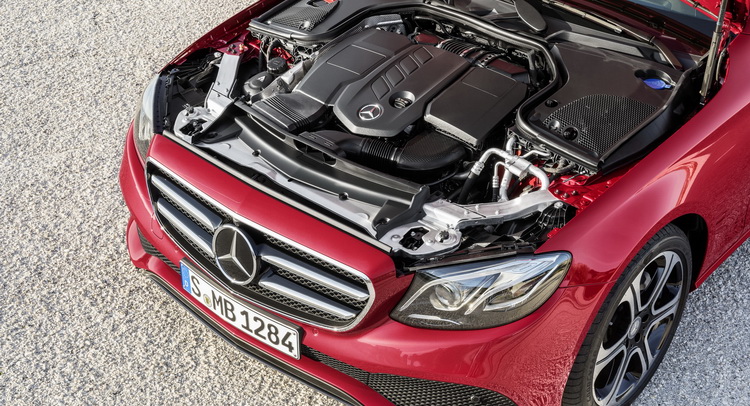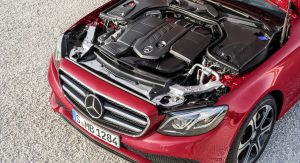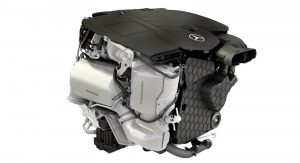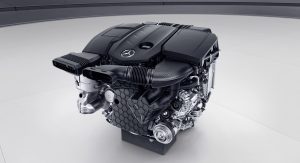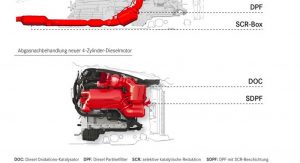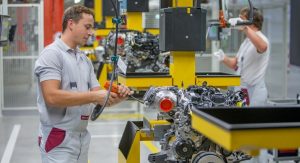The German company is developing a new family of engines, designed to meet future RDE requirements with the first member found under the bonnet of the new E-Class.
The new 191hp turbodiesel 2.0-litre with the code name OM 654 in the E220d is that engine, returning a combined 3.9lt/100km (72.4mpg UK) according to NEDC and 102g/km of CO2 emissions.
Mercedes is the first manufacturer to already offer a diesel engine that fulfills the future stricter emission limits. The company plans to create one huge modular family of engines, with several levels of power outputs, for both longitudinal and transverse configurations in models with front-, rear- and all-wheel drive. The plan is to equip every model in its passenger and commercial diesel range with this new generation of engines by 2019 at the latest.
Features like stepped combustion chambers and advanced exhaust-gas recirculation (EGR) will be common in the new engine family, with the design allowing all components for the EGR to be mounted directly on the engine, instead of the car’s floor. The company claims that this significantly enhances the effectiveness of the system and deems it largely independent of ambient temperatures and driving style.
DEKRA, a German independent vehicle inspection company, has tested the E220d’s new engine under the Real Driving Emissions method at various ambient temperatures between two and 16 degrees Celcius, confirming the low levels of nitrogen-oxide emissions produced by the OM 654. In fact, they claim that the E220d stayed under the 80mg/km NOx limit on all applicable RDE test routes.
Mercedes will also become one of the first manufacturers to add particulate filters to its petrol engines, with the first model to use them to be the S-Class in the next scheduled update.
“Our customers’ trust is very important to us and we take our responsibility to the environment very seriously,” says Prof. Dr. Thomas Weber, Daimler Board of Management Member for Group Research and Mercedes-Benz Cars Development. “That’s why we decided five years ago to invest massively in the further development of diesel technology. But we are also continuously making our gasoline engines more efficient and more environment-friendly; because high-tech combustion engines will remain the backbone of individual mobility until the widespread market success of electric vehicles.”
“For this reason, we are investing a total of about three billion euros to ensure further improvements in fuel consumption and emissions – in both future and current vehicles.”




